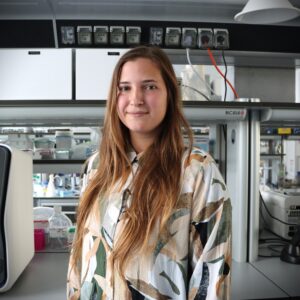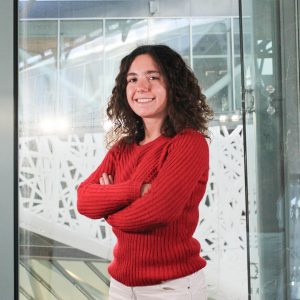
Iorio Group
Iorio group’s Apps, Tools and Computable Manuscripts
The Iorio Group works at the interface of biology, machine learning, statistics and information theory with the goal of understanding and predicting how genomic alterations and molecular traits from other omics contribute to pathological processes, biological circuits’ rewiring and have an impact on therapeutic response in human cancers and other diseases.
Our research aims at advancing human health by designing algorithms, computational tools and novel analytical methods for the integration and the analysis of pharmacogenomics and functional-genomics datasets, with the objective of identifying new therapeutic targets, biomarkers and drug repositioning opportunities.
With our experimental collaborators, we are contributing to the creation of a comprehensive map of all the genetic dependencies occurring in human cancers, and to the development of a computational infrastructure for translating this map into guidelines for early-stage drug development and precision medicine.
The Iorio Group designs, implements and maintains bioinformatics methods and original tools for the assessment of cancer pre-clinical models, the pre-processing, analysis and visualisation of genome-editing screening data, for the in-silico correction of new-technology-specific biases in such data, and for the optimization of single guide RNA libraries for pooled CRISPR-Cas9 screens and other experimental settings.
We are also interested in big-data analytics, the development of biomedical predictive models based on non-biomedical data, and computationally efficient constrained randomization strategies for testing combinatorial properties in large-scale genomic datasets and networks.
Group members
-
 Francesco Iorio
Francesco Iorio
Research Group Leader -
 Fateema Hani Bazzi
Fateema Hani Bazzi
Undergraduate Intern -
 Lorenzo Mathieu Brochier
Lorenzo Mathieu Brochier
PhD Student -
 Ottavio Croci
Ottavio Croci
Senior Data Scientist -
 Irene Fernández Rebollo
Irene Fernández Rebollo
PhD Student -
 Raffaele Iannuzzi
Raffaele Iannuzzi
PhD Student -
 Athanasios Oikonomou
Athanasios Oikonomou
Postdoc -
 Flavio Passante
Flavio Passante
PhD Student -
 Ludovica Proietti
Ludovica Proietti
Postdoc -
 Nevenka Radic
Nevenka Radic
Postdoc -
 Aurora Savino
Aurora Savino
Postdoc -
 Vanessa Spagnolo
Vanessa Spagnolo
Technician -
 Yasin Tepeli
Yasin Tepeli
Scientific Visitor -
 Gianluca Vozza
Gianluca Vozza
Postdoc
Publications
-
06/2025 - Molecular Therapy Methods and Clinical Development.
Impact of Culture Platform Transition on Adipose-derived Mesenchymal Stromal Cells Molecular Signatures: A Multi-Omics Analysis of Small-Scale versus Large-Scale Production
Mesenchymal stromal cells (MSCs) are being tested in numerous clinical trials, yet the limited progression of these trials to advanced stages indicates unresolved translational challenges. Expanding MSCs is a critical step in most therapeutic applications and bioreactor-based culture offers large-scale production compared to monolayer cultures. Nevertheless, since MSCs sense their microenvironment, it is crucial to […]
-
11/2024 - Life Science Alliance
Morphoregulatory ADD3 underlies glioblastoma growth and formation of tumor–tumor connections
Glioblastoma is a major unmet clinical need characterized by striking inter- and intra-tumoral heterogeneity and a population of glioblastoma stem cells (GSCs), conferring aggressiveness and therapy resistance. GSCs communicate through a network of tumor–tumor connections (TTCs), including nanotubes and microtubes, promoting tumor progression. However, very little is known about the mechanisms underlying TTC formation and […]
-
11/2024 - Nature Communications
Integrative ensemble modelling of cetuximab sensitivity in colorectal cancer patient-derived xenografts
Patient-derived xenografts (PDXs) are tumour fragments engrafted into mice for preclinical studies. PDXs offer clear advantages over simpler in vitro cancer models – such as cancer cell lines (CCLs) and organoids – in terms of structural complexity, heterogeneity, and stromal interactions. Here, we characterise 231 colorectal cancer PDXs at the genomic, transcriptomic, and epigenetic levels, […]
-
08/2024 - Blood
An unbiased lncRNAs dropout CRISPR-Cas9 screen reveals RP11-350G8.5 as a novel therapeutic target for Multiple Myeloma
Key Points We unveiled 8 lncRNAs essential for Multiple Myeloma (MM) cell fitness and associated with poor prognosis and high expression in MM patients We identified lncRNA RP11-350G8.5 as a therapeutic target for MM and characterised its oncogenic role, molecular and structural features Multiple Myeloma (MM) is an incurable malignancy characterised by altered expression of […]
-
07/2024 - Genome Biology
A benchmark of computational methods for correcting biases of established and unknown origin in CRISPR-Cas9 screening data
Background CRISPR-Cas9 dropout screens are formidable tools for investigating biology with unprecedented precision and scale. However, biases in data lead to potential confounding effects on interpretation and compromise overall quality. The activity of Cas9 is influenced by structural features of the target site, including copy number amplifications (CN bias). More worryingly, proximal targeted loci tend […]